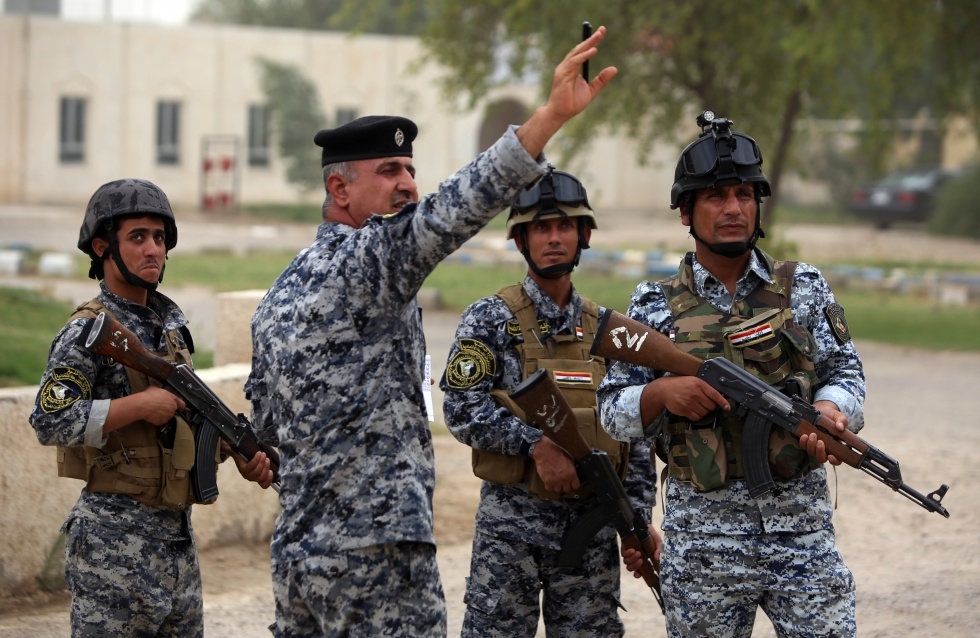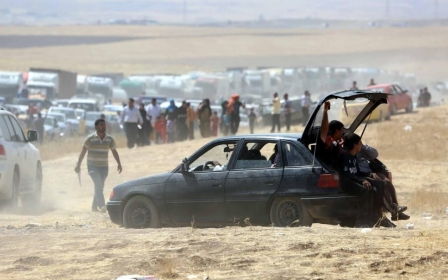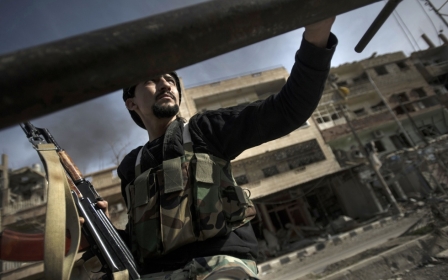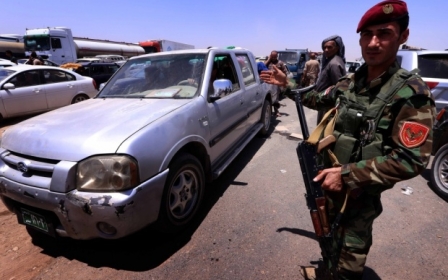Iraq parliament fails to pass emergency law

Iraq's parliament failed to reach a quorum Thursday, officials said, preventing it from voting on a request to announce a state of emergency to deal with a major militant offensive.
A senior government official told AFP only 128 of 325 MPs attended, and another official confirmed a quorum was not reached.
The "emergency session", which had been announced two days before, was then cancelled.
Prime Minister Nuri al-Maliki and the president's office submitted a request for parliament to declare a state of emergency on Tuesday, as militants overrun swathes of territory.
The failure of the session showcased how dysfunctional the Iraqi parliament, which has passed little significant legislation in years and is often poorly attended, has become.
The Islamic State of Iraq and the Levant group (ISIL) has spearheaded a major offensive that began on Monday night and has since overrun all of one province, major parts of two more and three villages in a fourth.
Iraq's security forces have so far failed to halt the offensive, with many soldiers abandoning their posts and uniforms and fleeing.
Bomb targets Kurdish minister as Kurds take Iraq's Kirkuk
Kurdish forces took control of the disputed Iraqi oil hub of Kirkuk on Thursday, after which a bomb targeted a Kurdish security minister, officials said.
Iraqi Kurds want to incorporate Kirkuk province into their autonomous region, a move Baghdad strongly opposes in a bitter, long-running dispute with them.
"We tightened our control of Kirkuk city and are awaiting orders to move toward the areas that are controlled by ISIL," Brigadier General Shirko Rauf of the Kurdish peshmerga security forces told AFP.
Shirko later said that Jaafar Mustafa, the Kurdish minister responsible for the peshmerga, was targeted in a bombing as he returned from visiting units southwest of Kirkuk city.
Mustafa survived, but the roadside bomb killed a peshmerga fighter.
Kirkuk Governor Najm al-Din Karim said peshmerga forces had filled in gaps left by Iraqi soldiers who withdrew from their positions in the province.
"Army forces are no longer present, as happened in Mosul and Salaheddin," Karim said.
NATO chief demands release of Turkish hostages in Iraq
Meanwhile, NATO chief Anders Fogh Rasmussen demanded Thursday the immediate release of 49 Turkish citizens snatched from a consulate in Iraq's northern city of Mosul.
"We urge the hostage takers to release the hostages immediately," the NATO secretary general told a news conference during a visit to Madrid. "Nothing can justify this criminal act."
The United States on Thursday also condemned the kidnappings of Turkish citizens and called for their immediate release.
Samantha Power, the US permanent representative to the United Nations, said the actions of ISIL were a threat to the region.
She said ISIL's actions were a "clear security threat to Iraq and a growing threat to the region," accusing the militant group of seeking "to turn back the clock on the progress Iraq has made".
Turkey pledged Wednesday it would retaliate if its kidnapped citizens were harmed.
During a phone call with Erdogan, US Vice President Joe Biden said "the United States is prepared to support Turkey's efforts to bring about the safe return of its citizens".
Russia and Syria
Russian Foreign Minister Sergei Lavrov said Thursday that the spectacular seizure of Iraqi cities was a clear sign of the "total failure" of the US-led invasion.
"The events in Iraq illustrate the total failure of the adventure involving the United States and Britain," Russian news agencies quoted Lavrov as saying, referring to the 2003 invasion that led to the toppling of Iraqi dictator Saddam Hussein.
"We stand in solidarity with the Iraqi leadership, the Iraqi people who should restore peace and security in their country but actions of our Western partners cause a huge amount of questions."
Similarly, Syrian state media on Thursday accused Saudi Arabia and the West of complicity with ISIL.
Echoing claims often made by the regime and its supporters, state media said Saudi and other allies of the Syrian opposition were funding and arming ISIL.
"Terrorism is spreading in front of the eyes of the western world... and alongside it are the fingers of Saudi Arabia, providing money and arms," the Al-Thawra daily wrote.
The editorial also accused Qatar and Turkey of playing similar roles "according to US demands or Israeli desires."
Syria's government deems all those seeking to oust President Bashar al-Assad "terrorists" and has drawn no distinction between rebel groups and peaceful protestors.
New MEE newsletter: Jerusalem Dispatch
Sign up to get the latest insights and analysis on Israel-Palestine, alongside Turkey Unpacked and other MEE newsletters
Middle East Eye delivers independent and unrivalled coverage and analysis of the Middle East, North Africa and beyond. To learn more about republishing this content and the associated fees, please fill out this form. More about MEE can be found here.




